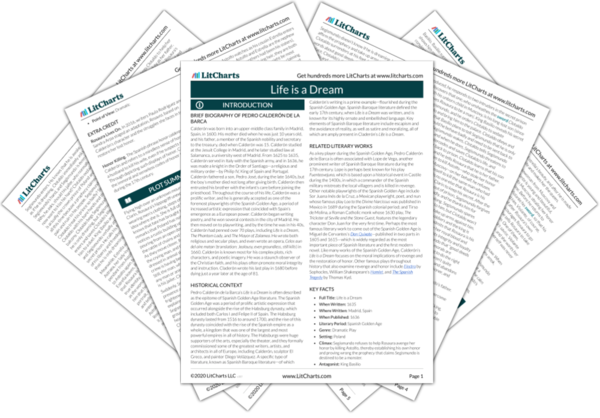Fate vs. Free Will
Pedro Calderón de la Barca’s play Life is a Dream explores the conflict between fate and free will. Fate, or destiny, assumes that one’s life follows a predetermined path that can’t be altered through individual choices or actions. Free will, on the other hand, assumes that one is able to freely choose a path from multiple courses of action. In Calderón’s play, Basilio, King of Poland, imprisons his son, Segismundo, from birth because…
read analysis of Fate vs. Free WillDreams vs. Reality
Pedro Calderón de la Barca’s Life is a Dream tells the story of Basilio, King of Poland, who imprisons his son, Segismundo, after a prophecy claims it is the young prince’s destiny to kill his father and divide his country. Years pass, and Basilio begins to doubt his decision to imprison Segismundo and deny the people their rightful prince. He decides to free his son, but just in case Segismundo really is a…
read analysis of Dreams vs. RealityMorality, Honor, and Vengeance
Calderón’s Life is a Dream is often interpreted as a didactic play of moral and Christian instruction. In addition to the story of Segismundo and his transformation from monster to righteous and good man, the play also examines the moral dilemmas encountered by Clotaldo and Basilio. Special attention, however, is placed on the story of Rosaura, a woman of noble birth whose honor is stolen by Astolfo, the Duke of Muscovy and…
read analysis of Morality, Honor, and Vengeance







